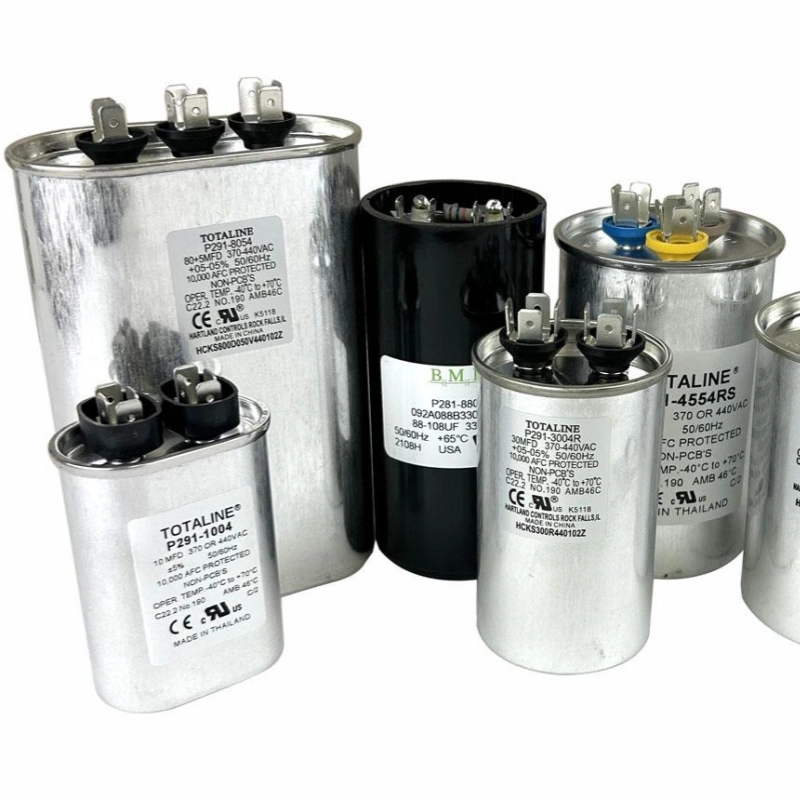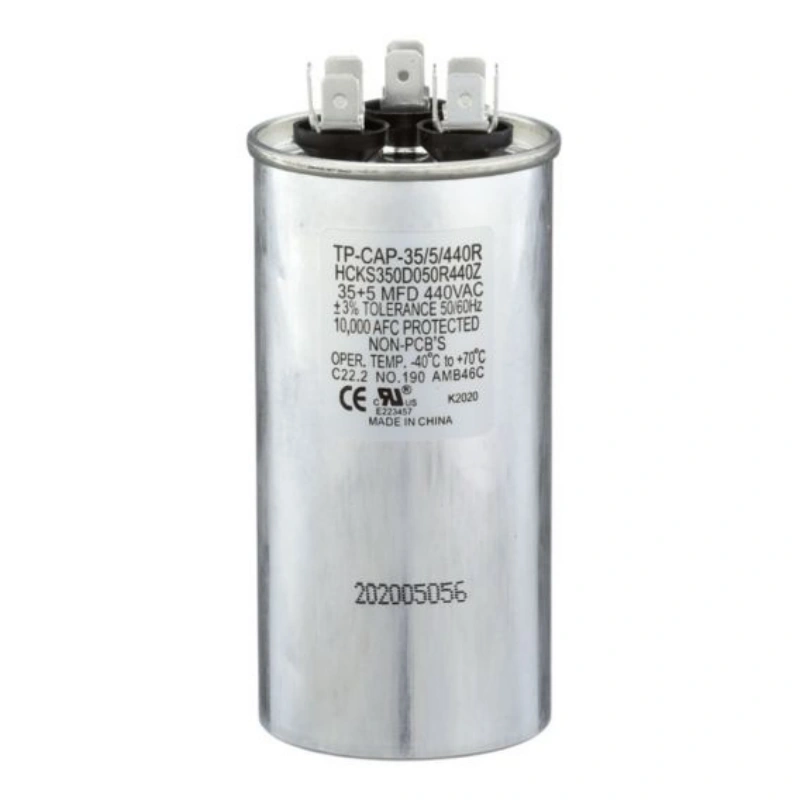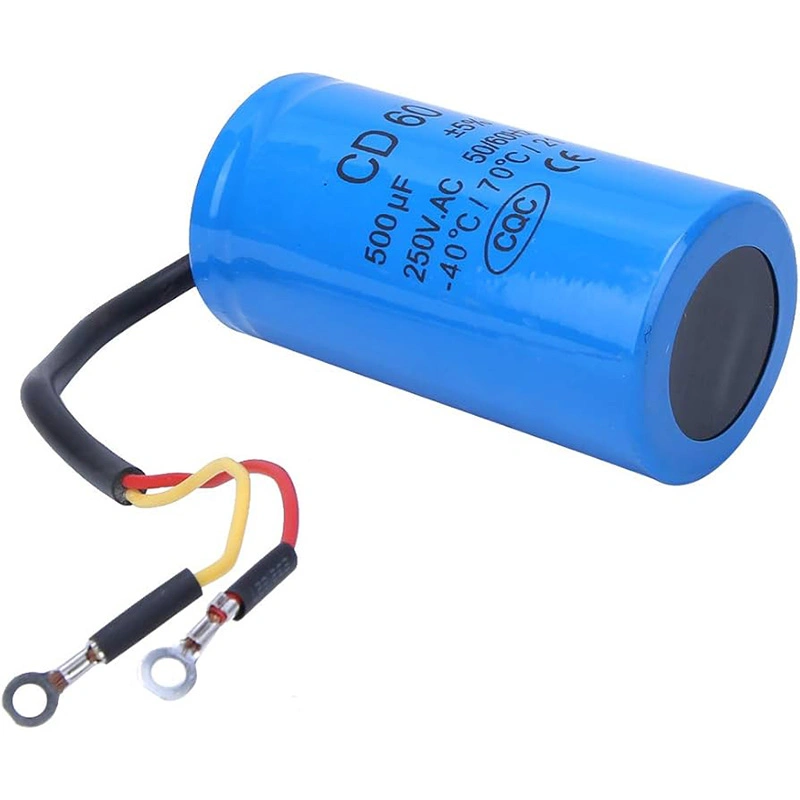Condenser Capacitor
A Condenser Capacitor plays a vital role in HVAC systems, air conditioners, and motors. It helps start and run compressors and fan motors, ensuring smooth operation. These capacitors deliver reliable performance, reduce energy consumption, and extend the lifespan of your equipment. Choose a high-quality Condenser Capacitor for maximum efficiency and durability. Don’t wait—upgrade your systems today with our top-rated Condenser Capacitors!
Get Condenser Capacitors with Affordable Prices
Upgrade your HVAC systems without breaking the bank. Our high-quality capacitors deliver superior tone and performance. Whether you’re a beginner or seasoned pro, our capacitors are the perfect choice. Quote capacitors from weishi today!

ac condenser capacitor
An AC Condenser Capacitor is essential for the efficient operation of air conditioning units. It powers the compressor and fan motors, ensuring they start and run smoothly. This capacitor boosts energy efficiency, improves system reliability, and extends the lifespan of your HVAC equipment. A common application is in air conditioners, where it ensures proper motor function. Trust our high-performance AC Condenser Capacitors for reliable, long-lasting results!
motor condenser capacitor
A Motor Condenser Capacitor is vital for enhancing motor performance. It provides the necessary power to start and run motors efficiently, reducing energy consumption and improving reliability. These capacitors ensure smooth operation, preventing motor failure. A common application is in HVAC systems, where they help power compressor and fan motors. Choose our durable Motor Condenser Capacitors for reliable, long-lasting performance in your equipment!


condenser fan capacitor
A Condenser Fan Capacitor is key to maintaining efficient airflow in HVAC systems. It powers the fan motor, ensuring it starts and runs smoothly, enhancing overall system performance. This capacitor improves energy efficiency and prevents motor strain. A common application is in air conditioner condensers, where it keeps the fan motor running at peak efficiency. Trust our high-quality Condenser Fan Capacitors for reliable and long-lasting performance in your systems!
condensing unit capacitor
A Condensing Unit Capacitor is essential for efficient operation in HVAC systems. It powers both the compressor and fan motors, ensuring they start and run smoothly. This capacitor boosts energy efficiency and enhances system reliability. A common application is in air conditioning units, where it optimizes the performance of the entire condensing unit. Choose our high-performance Condensing Unit Capacitors for reliable, long-lasting results in your HVAC systems!


condenser run capacitor
A Condenser Run Capacitor keeps motors running efficiently by providing continuous power. It ensures stable performance, reduces energy consumption, and prevents overheating. This capacitor is crucial for maintaining the smooth operation of compressors and fan motors. A common application is in air conditioners, where it powers the compressor and fan for reliable, consistent cooling. Trust our high-quality Condenser Run Capacitors for peak performance and durability!
condenser start capacitor
A Condenser Start Capacitor provides a burst of energy to start motors quickly and efficiently. It helps overcome initial resistance, ensuring smooth startup and reliable performance. This capacitor is essential for compressor and fan motors in HVAC systems. A common application is in air conditioners, where it ensures fast and efficient motor startup. Choose our high-performance Condenser Start Capacitors for reliable, long-lasting results in your equipment!

Condenser Capacitor Working Principle
A Condenser Capacitor plays a crucial role in powering motors within HVAC systems, air conditioners, and other machinery. It stores and releases electrical energy, helping motors start and run efficiently. Here’s how it works:
- Energy Storage: The capacitor stores electrical energy when the system is not in use.
- Power Boost: When the motor starts, the capacitor releases the stored energy to give it a powerful boost.
- Voltage Regulation: It helps maintain a consistent voltage, ensuring the motor operates smoothly.
- Efficient Operation: By improving energy efficiency, it reduces wear and tear on the motor, extending its lifespan.
- Application in HVAC: Commonly used in compressors and fan motors to ensure reliable performance.
Choose our Condenser Capacitors for high-efficiency, reliable operation, and extended equipment life!
Condenser Capacitor Applications
HVAC Systems:
A Capacitor Condenser is essential in HVAC systems for powering compressors and fan motors. It provides a powerful energy boost to ensure motors start quickly and run efficiently. By stabilizing voltage and reducing energy consumption, it enhances overall system performance. With a high-quality Capacitor Condenser, HVAC systems operate smoothly, improving both efficiency and longevity.
Refrigerators:
Refrigerators use a Capacitor Condenser to power compressor motors, ensuring consistent cooling performance. It provides the necessary voltage to start the motor and keep it running efficiently, reducing wear and tear. A Capacitor Condenser improves energy efficiency, lowers operating costs, and ensures that your refrigerator operates smoothly, maintaining optimal temperatures for food preservation.
Pumps and Motors:
Industrial and agricultural machinery relies on a Capacitor Condenser to power pumps and motors. It ensures smooth motor startups and continuous operation, reducing the risk of damage and improving system efficiency. By stabilizing voltage and enhancing motor performance, a Capacitor Condenser helps keep pumps and motors running at optimal levels, making operations more reliable and cost-effective.
Air Conditioners:
In air conditioners, a Capacitor Condenser helps motors start and run smoothly. It delivers the energy needed to get compressors and fan motors going, boosting cooling efficiency. This capacitor reduces strain on the motor, improving system reliability and lowering energy use. A reliable Capacitor Condenser keeps air conditioners running at peak performance, delivering consistent, effective cooling.
Heat Pumps:
A Capacitor Condenser plays a crucial role in heat pumps by providing the energy to power motors in both heating and cooling modes. It supports the compressor and fan motor, ensuring reliable performance throughout the year. By stabilizing motor functions and boosting energy efficiency, the Capacitor Condenser helps heat pumps deliver reliable heating in winter and cooling in summer, improving system reliability and efficiency.
Small Appliances:
In household appliances like washers and dryers, a Capacitor Condenser provides the boost needed to power motors efficiently. It helps the motor start quickly, ensuring smooth operation and reducing energy consumption. With a high-performance Capacitor Condenser, small appliances run more efficiently, extend motor lifespan, and provide reliable performance for everyday household tasks.
Condenser Capacitor FAQs
How to check a condenser capacitor?
To check a capacitor condenser, first, ensure the power is turned off to avoid electrical shock. Use a multimeter to measure the capacitor’s charge. Set the multimeter to the capacitor setting, and then connect the leads to the terminals of the capacitor. If the capacitor is in good condition, the multimeter will show a reading that indicates its capacitance. A faulty capacitor will show no reading or an abnormally low reading.
How to replace a condenser capacitor?
To replace a capacitor condenser, first, turn off the power supply and discharge the old capacitor by shorting its terminals with an insulated screwdriver. Next, remove the wires connected to the old capacitor, noting their positions for the new one. Install the new capacitor in the same orientation, connecting the wires as before. Secure the capacitor in place and restore power to check if the system is working properly.
How to wire a condenser fan motor capacitor?
Wiring a condenser fan motor capacitor is straightforward. Start by turning off the power to the unit. Locate the capacitor, and note the terminals: typically, you’ll see one for the fan and one for the common terminal. Connect the capacitor’s wires to the corresponding terminals on the fan motor and the control board. Always double-check the wiring diagram provided with your system to ensure correct connections before turning the power back on.
Is a condenser a capacitor?
No, a condenser and a capacitor are two different components, though they both store electrical energy. A capacitor stores energy in an electric field and is used in HVAC systems to regulate voltage and power motors. On the other hand, a condenser typically refers to a type of heat exchanger that cools gases or liquids, such as in air conditioners or refrigeration units. However, “condenser” is sometimes used informally to refer to a capacitor in HVAC contexts.
What is the difference between a capacitor and a condenser?
While the terms “capacitor” and “condenser” are often used interchangeably in HVAC systems, they technically refer to different things. A capacitor is an electrical component that stores energy in an electric field to smooth out voltage fluctuations and aid motor operation. A condenser, however, is a device that removes heat from a gas or liquid in cooling systems. In some cases, “condenser” may be a colloquial term for a capacitor used in air conditioning and refrigeration.
Where to buy a condenser capacitor?
You can buy a Condenser Capacitor from various sources, including local hardware stores, home improvement centers, and specialized HVAC suppliers. Online retailers like Amazon, eBay, or HVAC-focused websites often carry a wide range of capacitor models. Make sure to select the right size, voltage, and capacitance rating for your system to ensure optimal performance. You can also consult with a professional technician to get a reliable recommendation for the right capacitor for your needs.